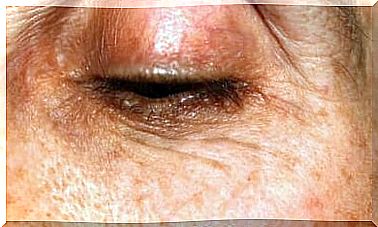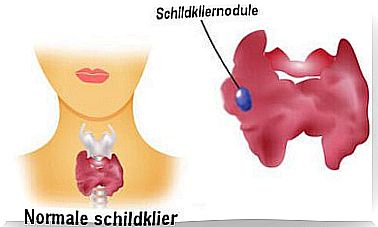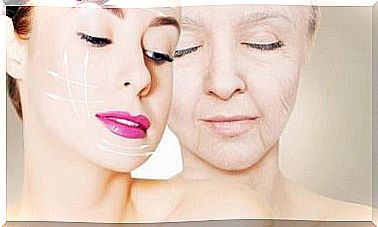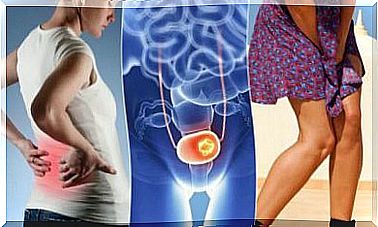6 Facts About Hashimoto’s Disease
In 1912, the Japanese doctor Hakaru Hashimoto discovered a new autoimmune disease, later called Hashimoto’s disease. According to the research results , this disease involves an attack of the immune system on the thyroid gland.
Learn more about Hashimoto ‘s disease below .
1. What is Hashimoto’s Disease?
When Hashimoto did his research, he found that the immune system sometimes attacks body tissue, instead of protecting it.
In the case of this disease, the body attacks the thyroid gland.
The immediate result is a significant reduction in the production of hormones needed for many bodily functions.
2. The Causes of Hashimoto’s Disease

However, the causes of this disease are not yet fully understood. But scientists believe that certain aspects are related to its development.
If you have the 4 risk factors that we describe below, you should see a specialist to find out if you have this disease or what the risk is for it.
your genes
First, this disease is common in families with multiple cases of Hashimoto’s or diseases of the same name.
It is therefore important to talk to your loved ones and undergo examinations to rule out serious problems.
Excessive iodine consumption
Dr. Hashimoto’s studies also showed that excessive iodine consumption can be a major trigger for this disease.
While you should always avoid excess iodine, you should pay particular attention to your intake if you have a family medical history.
Unexplained hormonal changes
Because Hashimoto affects the thyroid, your hormone levels can change as a result.
In general, most women with this disease are diagnosed within one to five years of pregnancy. However, it can also show up even before a pregnancy.
Exposure to radiation
This disease is also one of the most common effects of radiation exposure. Several studies done after the explosions at Hiroshima, Nagasaki, and Chernobyl indicate this.
Patients who have undergone radiation to treat leukemia or other types of cancer, for example, can develop this disease as a result.
3. Symptoms of Hashimoto’s Disease
The symptoms come on slowly, making them difficult to spot.
Changes to watch out for include:
- Extreme daily fatigue
- Sensitivity to cold
- Chronic, sudden constipation
- puffy face
- Constant snoring
- White and dry skin
- Stiff hips and shoulder muscles
- Weak lower limbs
- Weight gain due to fluid retention
- Stiff hands, feet and knee joints
- Constant Depression
- Excessive menstrual bleeding
4. Detecting Hashimoto’s Disease
Hashimoto can be diagnosed with the following examinations:
- T3 test: A test that shows problems with the pituitary gland and triiodothyronine hormone.
- TSH (thyroid-stimulating hormone) test: TSH is a hormone that stimulates the thyroid gland to produce and release other hormones into your blood. This test shows whether the levels are out of balance or not.
- T4 test: The balance of this hormone is very important. It is common for this level to be increased by medications such as contraceptives, while barbiturates lower it. Beyond these factors, however, the levels must be good.
5. What does this disease do?
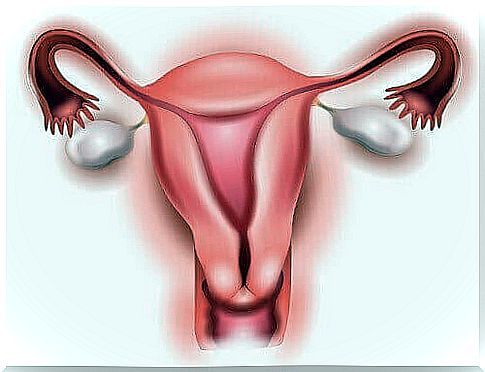
The problems that Hashimoto causes make it an autoimmune disease. As we mentioned earlier, it is a condition where the body fights against its own tissues and organs. This means that affected tissue can no longer do its job properly.
Over the years, more diseases can develop, such as:
- Type 1 Diabetes
- Lupus erythematosus
- Ovarian Problems
- heart problems
- Rheumatoid arthritis
- myxedema
- Thyroid enlargement
- Addison’s disease
6. Preventing Hashimoto’s Disease
Unfortunately, there isn’t really a way to prevent Hashimoto’s. Therefore, all you can do is remember the risk factors. Also keep an eye on the symptoms.
Having a family medical history is a risk factor. You should then have annual checkups to make sure everything is okay.
If you want to prevent it or lower your risk, a healthy lifestyle helps. This should include proper diet, exercise and rest.
However, it is also important to remember that the disease has symptoms that are easily recognized by specialists. So you can be there on time. The tests are also very precise and early diagnosis can help you control the disease and prevent complications.


